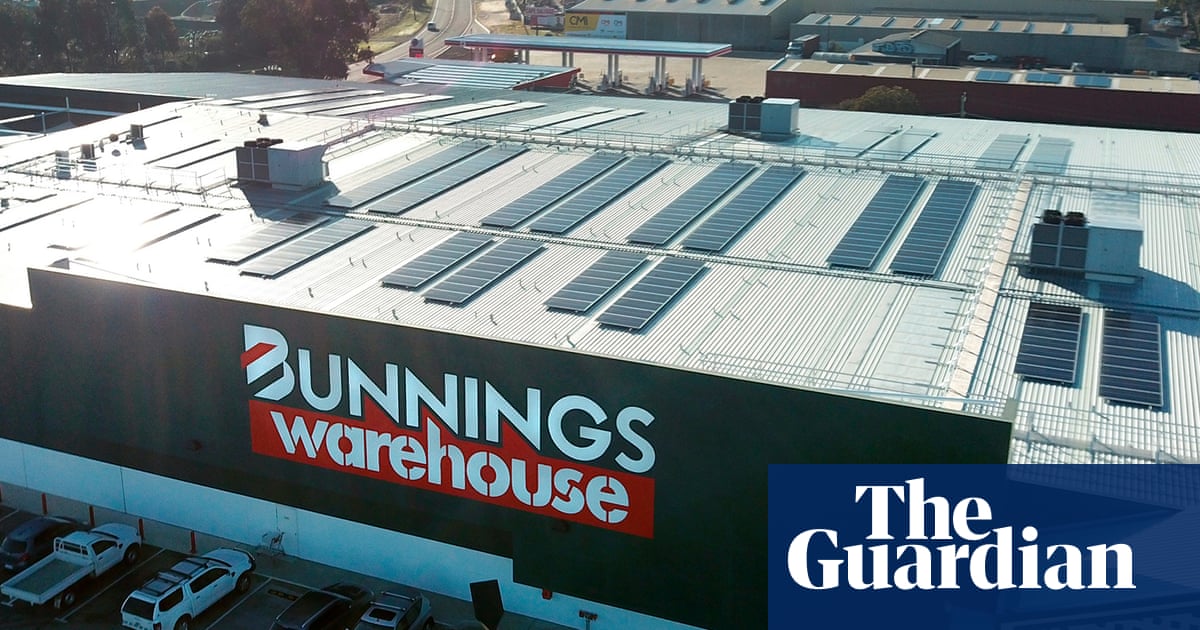Wesfarmers has secured a $100m loan with the government’sClean Energy Finance Corporationto install more solar panels, batteries and EV chargers at its Bunnings and Officeworks stores.
The chief executive of the CEFC, Ian Learmonth, said he hoped the financing package at the high-profile stores would help create a “ripple effect” through the commercial sector, where the uptake of rooftop solar has been slower than across residential properties.
The financing package, to be paid back by Wesfarmers over seven years at a competitive interest rate, would help accelerate the group’s decarbonisation plans, Learmonth said.
“As a leading Australian company with these household brand names, we can provide them with competitive finance that’s allowing them to meet a business case to deliver roof top solar, battery storage, various energy efficiency initiatives and putting EV chargers in,” he said.
Sign up for Guardian Australia’s breaking news email
“There is potential growth in the commercial and industrial sectors. When people see Bunnings and Officeworks doing this, it adds a ripple effect where other large companies can be influenced by seeing what these companies are doing, and seeing their car parks with EV chargers.”
He said large industrial roof spaces had not been as well utilised with solar panels as households, sometimes because either structurally the roofs were not strong enough, or agreements were complicated between tenants and building owners.
He said: “This is a great opportunity where we have the owner and operator – Wesfarmers – that we can work with.”
The CEFC, with access to $32bn of government money, is a green bank that provides financing and loans to accelerate decarbonisation.
Sign up toBreaking News Australia
Get the most important news as it breaks
after newsletter promotion
Australia’s retail sector accounts for half of the energy use of all commercial properties and 5% of the country’s emissions.
CEFC said the solar and battery installations could also help to stabilise the country’s electricity grid.
Storing solar electricity in batteries to use in evening peaks, for example, can help even out power demand at times of higher electricity use.
The executive director at the CEFC, Richard Lovell, said: “By focusing on using its existing building assets to support renewable energy generation and energy storage, which are crucial for energy demand management, Wesfarmers continues to execute its active decarbonisation strategy to reduce its direct emissions.”
Bunnings, Officeworks and WesCEF all have targets to reach net zero direct emissions by 2030, and to use 100% renewable electricity by the end of 2025.
Wesfarmers will also use part of the CEFC finance to fund a study at its chemicals, energy and fertiliser business, WesCEF, into decarbonising the production of sodium cyanide – a chemical used in gold production.
Work to install and upgrade facilities at Bunnings and Officeworks sites is expected to be completed by the end of this year.
Wesfarmers chief financial officer, Anthony Gianotti, said the company welcomed the backing of the CEFC. “We have long managed our businesses with climate and carbon awareness and we are committed to continuing to take action to reduce our impact on the environment.”
